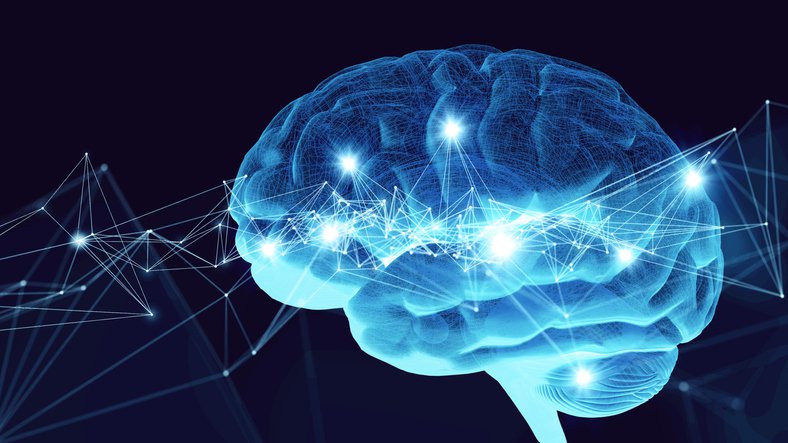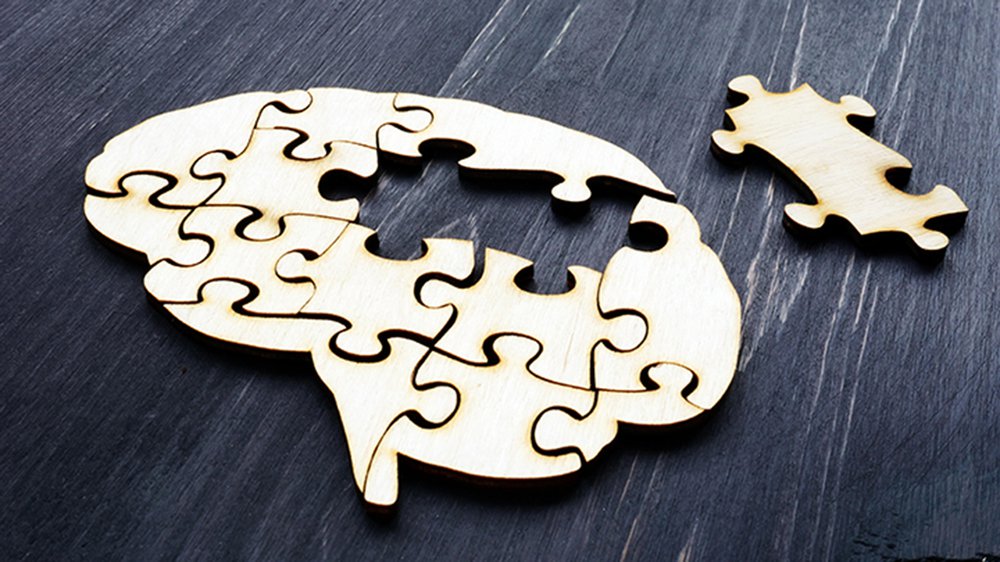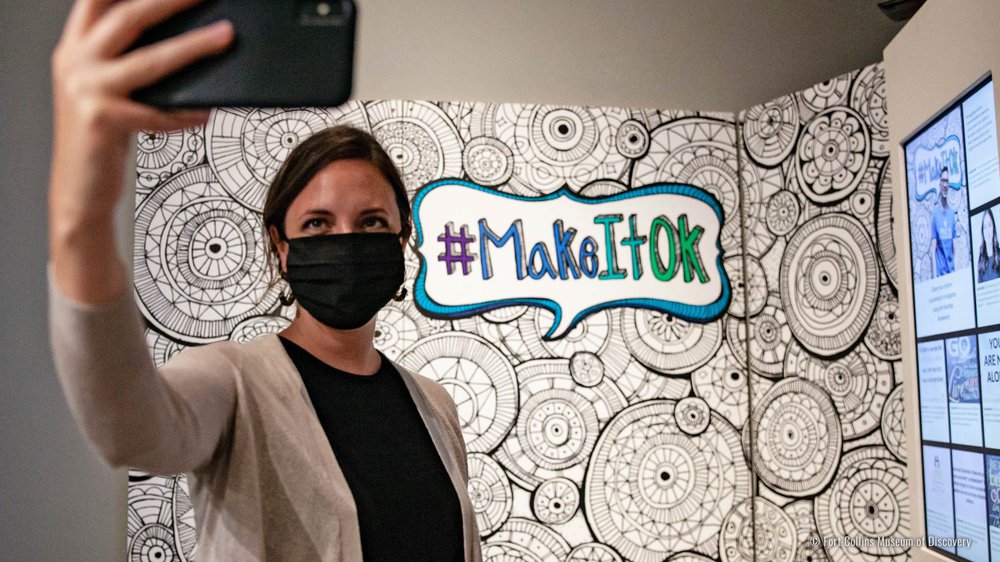If you see a commercial for diabetes supplies, it’s easy to tune it out if you don’t have diabetes. Or if the commercial is for lawn care and you don’t have a lawn, you can easily ignore the product or service that business is selling.
When something doesn’t directly impact us, many of us tend to spend very little time thinking about it. But often the impacts do hit closer to home than you may realize. Your healthcare costs or pharmacy wait times could be impacted because of people with diabetes, and the chemicals a lawncare company puts on a neighbor’s yard could impact insects and water supply sources in your entire neighborhood.

Image credit: Getty Images
This connection is also true with mental health. You may not have a mental illness, but mental health does affect you.
You Know Someone
Mental illness is more common than heart disease, diabetes, and cancer. According to the National Alliance on Mental Illness (NAMI), one in five people have a mental health condition. Half of all mental illness symptoms start before the age of 14, and 75% by the age 24. There are 102,000 children and adolescents in our state that have a serious emotional disturbance.
Think about your extended family. If you have more than five relatives, chances are a niece, brother, aunt, or cousin has a mental health condition. Think about at work. Are you part of a team of more than five people? Maybe you even manage at least five people. Again, statistically someone in that group is living with a mental health condition. Think about your faith community, book club, friend group, rec sports team, etc.–odds are very good that you know someone with a mental health condition.
You interact with those people: complete projects with coworkers, coach a sports team of teenagers, navigate social settings (such as parties), maintain relationships with neighbors, engage with your child’s teacher, etc. Any one of those encounters could be with someone with a mental health condition.
Mental health conditions are part of what it means to be human. They aren’t good or bad, they just are. They also don’t define a person. They are just one of many parts that makeup the people who are in our families and communities.
If you don’t understand this fact about mental illness, you might be fearful or confused being around someone with one of the nearly 300 mental disorders listed in the American Psychiatric Association’s Diagnostic and Statistical Manual of Mental Disorders (DSM) 5. Or even worse, you might unknowingly perpetuate stigmas that lead to suffering, prejudice, and discrimination. Most people don’t want to intentionally hurt those around them, so understanding more about mental illness can help keep you from making missteps.
You’re Not Immune
Mental illness can happen to anyone. As scientists learn more, they are beginning to understand genetic, biological, and environmental influences on everything from addiction to autism to Alzheimer’s to anxiety. These are conditions programmed into the genetic codes of our bodies and triggered by any number of factors. Mental illness is not a choice or personal flaw, but instead a medical condition that requires management and care.

Image Credit: Getty Images
We know from June 2020 Center for Disease Control (CDC) reporting that US adults had considerably elevated adverse mental health conditions, substance use, and suicidal ideation associated with COVID-19. Traumatic events like a pandemic can negatively impact everyone’s mental health and wellness, requiring we all be more in tune with our needs.
Perhaps you’ve never been diagnosed with a mental illness, but are experiencing challenges for the first time, and now have symptoms that warrant a need for medical intervention. It’s important that you can recognize that and seek the help you need. What moves normal mental health challenges to the level of being a mental health condition? When the emotions, thought process, or other symptoms get to the point where they are significantly disrupting daily functioning. This may mean the frequency, the paralysis it may cause, or something else. Mental health conditions can be chronic (long lasting) or acute (short lasting) but none get better without treatment.
Everyone’s health is impacted by their mental wellness–mood, thoughts, behaviors, and emotions–and every person could benefit from a heightened awareness of their mental health, and how to take care of it. Similar to physical health, there are easy steps each of us can do to strengthen our mental health, and attending to it should be a regular activity. Similar to a medical condition, the more preventative work you do, and attention you pay to symptoms, the more quickly you can identify and work to treat your mental health.
Be A Resource
Those living with mental health challenges can live productive, fulfilling, and happy lives. Although mental illness is treatable, not everyone seeks help or is aware that medical interventions options are available. Untreated mental illnesses cost nearly $100 billion a year in lost productivity due to hospitalization, loss of employment, impacted productivity, and shortened life spans. Of the 10 leading causes of disability, four are due to mental illness.
If you understand signs and symptoms, and options for treatment, you can help someone who hasn’t sought medical care access resources they need to start their treatment journey. Or, if you ever encounter someone experiencing a mental health crisis, you can react quickly and appropriately to get them the help they need. This is especially true for children as early intervention is important.

Only 44% of adults with mental illness get the treatment they need in a given year, and the number is only slightly higher for children with mental health conditions at 51%.
Knowing when to step in could prevent a suicide, prison time, homelessness, or a drug overdose, or it could avert a workplace confrontation, violence, or another tragic outcome. Whether it’s in a personal or professional setting, you serving as a resource could be life-changing or life-saving for someone. A community full of healthier people in is everyone’s best interest.
Museum Support
Mental illness has long been discussed and treated differently from other health conditions. In February the Museum opened the touring exhibition Mental Health: Mind Matters to help promote healthy, productive conversations about mental illness.
The exhibition can help you understand mental illness. The more you understand other people and their situations, the more empathic and helpful you can be. You will feel empowered to encourage conversations around recognition, normalization, and resources related to mental health. You will be more aware of how critically important mental health is as a key component to overall health and functioning.
The exhibition, in conjunction with NAMI’s resources, will help you continue to learn more about how mental illness does affect you. When you have a knowledge base, you can utilize it for good in your networks.


